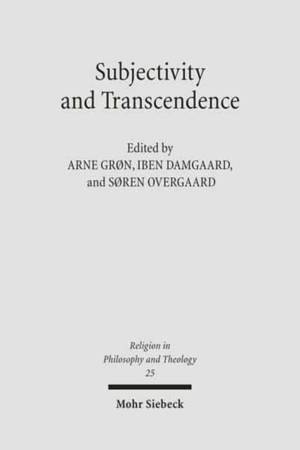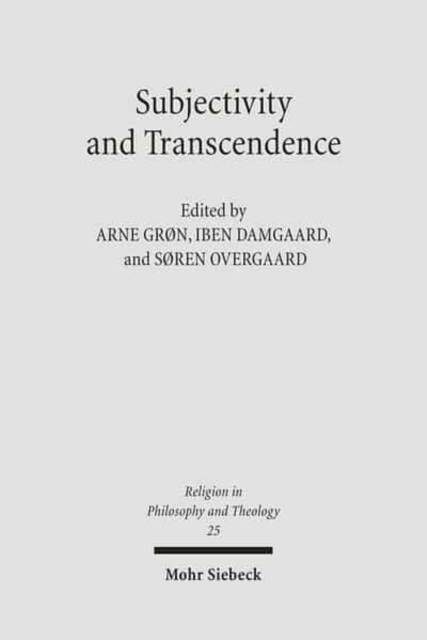
- Afhalen na 1 uur in een winkel met voorraad
- Gratis thuislevering in België vanaf € 30
- Ruim aanbod met 7 miljoen producten
- Afhalen na 1 uur in een winkel met voorraad
- Gratis thuislevering in België vanaf € 30
- Ruim aanbod met 7 miljoen producten
Zoeken
Subjectivity and Transcendence
€ 77,95
+ 155 punten
Omschrijving
Modern philosophy begins with Descartes' discovery of an apparently indubitable realm of subjectivity . The Cartesian approach confronts philosophy with the problem of transcendence At the same time as we appear to have secured an immanent realm of subjectivity, it becomes a problem how we can establish the existence of something outside this realm. What could possibly force - or even motivate - a subject, in possession of itself, to recognize a God, a world, or a peer outside itself? Thus, Descartes' philosophical legacy is a problem rather than a solution: the problem of subjectivity and transcendence. How is it possible to combine a post-Cartesian emphasis on subjectivity with a strong conception of transcendence? What notions of subjectivity and transcendence will we have to commit ourselves to? Despite the fact that the problem is central to modern philosophy and theology, no single volume has so far been dedicated to the problem of subjectivity and transcendence. This volume thus fills an important gap. The 12 chapters address the problem of subjectivity and transcendence from a variety of different perspectives: historical, philosophical, theological, and psychopathological. Contents: Arne Gron and Soren Overgaard Introduction - Arne Gron Subjectivity and Transcendence: Problems and Perspectives - Ingolf U. Dalferth Beyond Understanding? Transcending Our Limits and the Limits of Our Transcending - Josef Parnas Subjectivity in Schizophrenia: The Minimal Self is too Small - Merold Westphal Intentionality and Transcendence - Soren Overgaard In Defense of Subjectivity: Husserl, Levinas, and the Problem of Solipsism - Henrik Vase Frandsen Transcendence of the Appeal - Sovereignty of the Subject - Dan Zahavi Subjectivity and Immanence in Michel Henry - Claudia Welz The Presence of the Transcendent - Transcending the Present? Kierkegaard and Levinas on Subjectivity and the Ambiguity of God's Transcendence - Iben Damgaard Passion for the Possible: A Kierkegaardian Approach to Subjectivity and Transcendence - George Pattison Desire, Decreation and Unknowing in the God-Relationship: Mystical Theology and its Transformation in Kierkegaard, Simone Weil and Dostoevsky - Caspar Wenzel Tornoe God and the Demiurge: Subjectivity and Transcendence from a Theological Perspective - Saskia Wendel The Emergence of Transcendence in Self-Consciousness: Towards a Rehabilitation of a Transcendental Position of Philosophy of Religion
Specificaties
Betrokkenen
- Uitgeverij:
Inhoud
- Aantal bladzijden:
- 255
- Taal:
- Engels
- Reeks:
- Reeksnummer:
- nr. 25
Eigenschappen
- Productcode (EAN):
- 9783161492600
- Verschijningsdatum:
- 31/12/2007
- Uitvoering:
- Paperback
- Formaat:
- Trade paperback (VS)
- Afmetingen:
- 153 mm x 229 mm
- Gewicht:
- 401 g

Alleen bij Standaard Boekhandel
+ 155 punten op je klantenkaart van Standaard Boekhandel
Beoordelingen
We publiceren alleen reviews die voldoen aan de voorwaarden voor reviews. Bekijk onze voorwaarden voor reviews.










